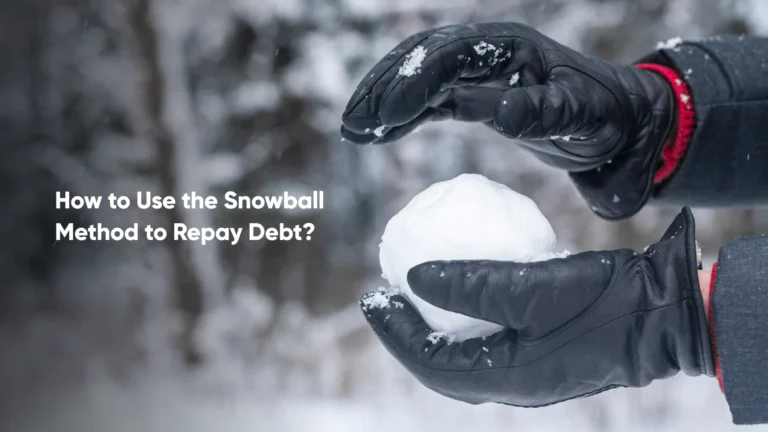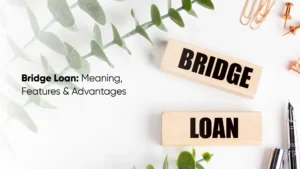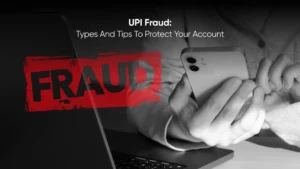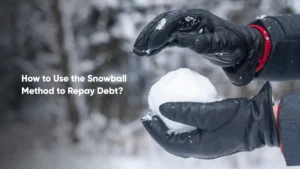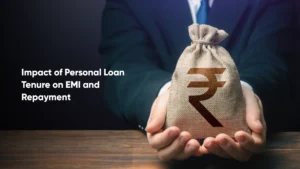Table of Contents
ToggleWhat is the Snowball Method?
The snowball method is a debt repayment strategy where you repay the loan in a strategic way, to help you clear off the loan and build momentum to repay the next one. In this method, you work on the smallest loan to the largest. You have to still continue making the minimum due on other debts, but any extra money will go towards clearing off the smallest loan.
When the smallest loan is cleared, you roll the funds towards the next smallest loan, creating a snowball effect.
As you repay the smallest loan first, it builds momentum. The momentum gives a confidence boost to clear the rest of your debts and help you stay disciplined. As the smaller debts get cleared, the borrower gets more motivated to clear the rest of the debts early.
Why Choose the Debt Snowball Method to Repay Debt?
The debt snowball method focuses on clearing the debt from smallest to largest. This approach gives tangible results quickly, which helps one feel more motivated to clear the remaining debt.
Advantages of Debt Snowball Method:
- Tangible Results: When the smaller debts get cleared, it gives momentum to clear the remaining debts as well.
- Boosted Confidence: It gives an immediate boost when one loan gets cleared.
- Easy to Follow: Fairly easy to follow, as you focus on the smallest debt and more on the next small debt.
- Improves Consistency: Tangible results help one follow a disciplined structure.
- Psychological Relief: When one sees debt disappear one by one, it gives a big boost and confidence to clear the remaining ones with discipline.
Step-by-Step Guide to Implement the Snowball Method
The Snowball method focuses on clearing the smallest debt first. Here is our step-by-step guide to implement the method if you plan on clearing multiple debts:
Step 1: Make a List of All Your Debts
List all your existing debts from smallest to largest. Ignore their interest rates, just focus on the loan balance.
Step 2: Pay The Minimum Due Toward All Debts Except The Smallest
Keep making minimum debt payments towards existing debts to avoid penalties.
Step 3: Allocate Extra Funds To The Smallest Debt
If you have any extra funds from your monthly budget, a bonus or end up saving more from cutting down other expenses, utilise them to clear off the smallest debt.
Step 4: Once Cleared, Roll That Amount Into The Next One
When the smallest debt gets cleared off, utilise that amount to clear off the next smallest debt.
Step 5: Repeat Until All Debts Are Cleared
Keep paying off debts consistently, and eventually, every debt gets cleared, allowing for more cash flow.
Monitor your progress, track expenses and cut out any unnecessary spends. By following the above steps, you will clear all your debts in a focused manner and enjoy being debt-free earlier.
Also Read: What is Debt Management Program and How It Works?
Snowball Method Vs. Other Debt Repayment Strategies
The snowball method is most effective for borrowers who need motivation and a confidence boost to stay consistent with payments. It’s ideal when debts are spread across credit cards, small personal loans, or EMIs of varying amounts. On the other hand, financially disciplined individuals who can stay focused without early wins may benefit more from the avalanche method.
Method | Pros | Cons | Best For |
Snowball Method | Quick wins boost motivation. Simple and easy to follow. Builds repayment discipline | May cost more in interest over time if high-interest debts are left for later. | Borrowers who need motivation and want to see quick, tangible results. |
Avalanche Method | Saves the most money on interest. Financially efficient in the long run | Slower visible progress. It may require more patience and feel discouraging at the beginning | Disciplined borrowers who can stay consistent without seeing any early rewards. |
Common Mistakes to Avoid When Using the Snowball Debt Repayment Method
The snowball debt repayment strategy is effective in clearing debts. But there are a few factors to keep in mind when using this method, to ensure there are no losses or more harm done. Here are some common snowball method mistakes to watch out for:
Ignoring Interest Rates Entirely:
While this method focuses on the loan balance, it is important to take into account high-interest loans as well. If one keeps a high-interest debt on a minimum payment, it can cause unnecessary financial strain.
Not Tracking Other Expenses:
When you are clearing debts, take into account your other expenses. Track them and see if some expenses can be cut down. This frees up more funds to clear the debt.
Taking on a New Debt or Credit:
Adding new loans or swiping credit cards during repayment cancels progress. Stick to your repayment plan and avoid fresh borrowing unless essential.
Not having an Emergency Fund:
Aggressively paying debts without a backup fund can force you into new debt during unexpected expenses. Keep at least a small reserve before starting.
By steering clear of these mistakes, you can ensure your snowball journey stays on track and leads you steadily toward a debt-free future.
How the Snowball Method Works in India’s Financial Context
In India, we have many individuals with different types of debts, be it credit bills, personal loans, education loans or even consumer durable EMIs. If one has multiple debts to pay off, one needs to strategically tackle them to manage the debt. The snowball method in this case can be a good approach to manage them. It works by prioritising clearing the debt from the smallest to the largest amount. The quick results motivate one to keep a consistent payment routine, thus helping them clear the rest of the debts as well.
Tips to Manage Debts Better
- Utilise tools like Walnut, Excel trackers, to keep track of all different types of debts.
- Keep an emergency fund to take care of any expenses that may arise in time
- Avoid taking on any new credit until you have cleared all the existing ones
- Keep a check on credit score, and with consistent payments, your score will likely improve.
Also Read: How to Improve CIBIL Score: 10 Smart Tips to Go from 600 to 750
Case Study: Real-Life Success Story Using the Snowball Method
Ritika, a 32-year-old marketing professional from Pune, found herself juggling multiple debts: two credit cards, a small personal loan, and an education loan EMI. With payments scattered and interest rates piling up, she often felt overwhelmed and unsure where to begin.
After much research, Ritika decided to try the snowball method. She listed her debts from smallest to largest, regardless of interest rates. Her smallest balance was a ₹15,000 credit card bill. By directing all extra funds toward clearing this first while continuing minimum payments on other loans, Ritika experienced her first win within two months.
This small win motivated her to stay consistent. She rolled the cleared payment amount into her next smallest debt, another credit card of ₹35,000. Eventually within 14 months, she was able to clear three debts and was left only with her debt consolidation loan. Her story reflects how the snowball method can turn financial challenges into a clear, motivating path toward debt freedom.
Frequently Asked Questions
What Is The Difference Between The Snowball Method And Debt Avalanche Method?
The snowball method focuses on paying off the smallest debt first while debt avalanche method focuses on clearing the highest- interest loan first, to save on cost for the long term.
Can I Use The Snowball Method If I Have High-Interest Debts?
Yes, you can. The snowball method builds momentum for consistent payments as you see tangible results quickly. However, the snowball method focuses more on clearing the smallest loan than on the interest rates.
How Long Does It Usually Take To Pay Off Debts With The Snowball Method?
That depends on your existing debts and repayment. Many find the snowball method motivating as you see smaller debts getting clear faster.
Is The Snowball Method Suitable For All Types Of Debts?
The snowball method works best for small debts like credit cards, personal loans or any other small loan. For big loans like a home loan, it may require a different approach.
How Can I Stay Motivated During The Debt Snowball Process?
Track each milestone and celebrate each paid off-debt. This will boost your confidence and motivate you to stay on track.
Are There Any Tools Or Apps To Help Me Manage The Snowball Method?
Yes, budgeting apps, debt-tracking spreadsheets, and many financial planning tools can help you automate EMI payments, monitor your progress, and stay disciplined.
